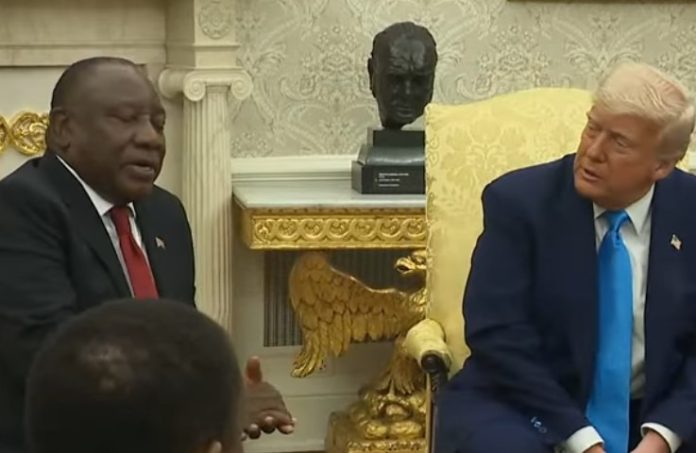
The South African government has condemned the United States’ decision to prioritise refugee applications from white Afrikaners, calling the move “misguided” and based on discredited claims of a so-called “white genocide.”
In a statement, the government said there was no credible evidence to support assertions that white South Africans were being systematically targeted or persecuted. It also cited an open letter published earlier in the week by prominent Afrikaners, who rejected the narrative entirely with some calling the US relocation scheme racist and politically motivated.
“The limited number of white South African Afrikaners signing up to relocate to the US is clear evidence that they are not being persecuted,” the government said.
The criticism came after President Donald Trump’s administration announced the lowest annual refugee cap in US history, just 7,500 people, while creating a special category for white Afrikaner applicants.
The move has sparked outrage in Pretoria, with officials accusing Washington of weaponising misinformation for political purposes.
South Africa’s latest crime statistics show no evidence that white citizens are more frequently victims of violent crime than any other racial group. The government stressed that violent crime affects all South Africans, and using it to justify racialised asylum policies is “deeply irresponsible.”
President Cyril Ramaphosa’s administration said the controversy stems from Trump’s long-standing opposition to South Africa’s land reform policy, which allows the government to seize land without compensation in exceptional cases.
Earlier in the year, Trump offered refugee status to Afrikaners, who are largely descendants of Dutch and French settlers, following the signing of the land reform law.
The dispute has further strained US-South Africa relations, especially after Ambassador Ebrahim Rasool was expelled from Washington for accusing Trump of “mobilising supremacism” and “projecting white victimhood as a dog whistle.”
During a May 2025 Oval Office meeting, Trump reportedly confronted Ramaphosa, claiming that white farmers were being “killed and persecuted.” According to reports, Trump even held up a photo that he said showed body bags of murdered white South Africans — but the Reuters news agency later revealed the image was taken years earlier in the Democratic Republic of Congo, unrelated to South Africa.
Washington refused to comment on the photo blunder, though it later emerged that the White House video presentation also included misleading footage. Officials said the clip showed burial sites for murdered farmers, but investigators later confirmed it was from a 2020 protest, where crosses symbolised victims of farm attacks spanning multiple years.
The South African government said these distortions prove that the narrative of white persecution is a “manufactured myth” used to inflame racial tensions. It reaffirmed its commitment to protecting all citizens equally, regardless of race, and called on the US to “avoid importing falsehoods into its foreign policy decisions.”



